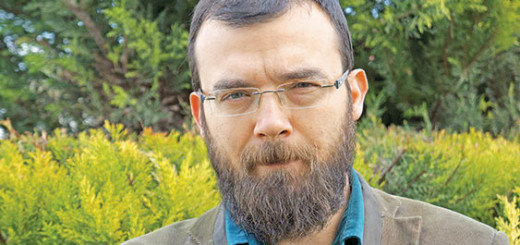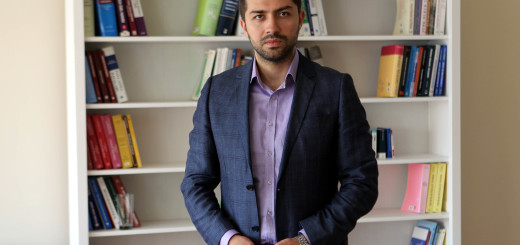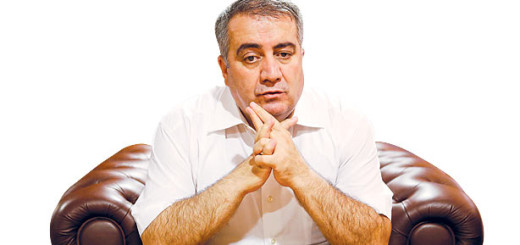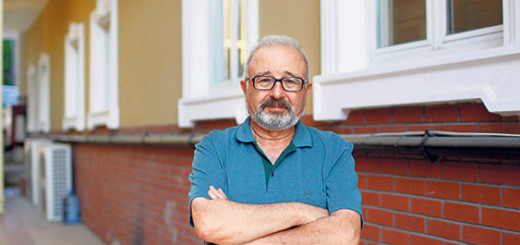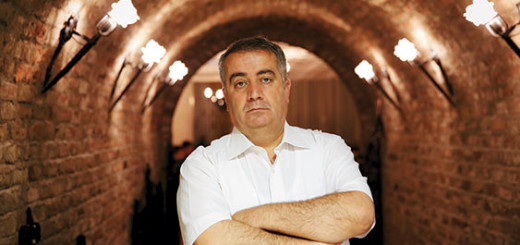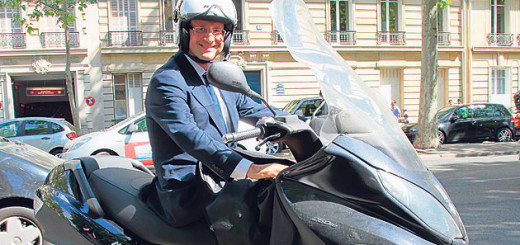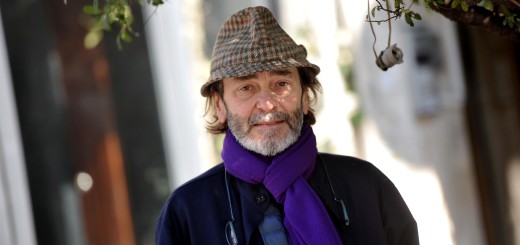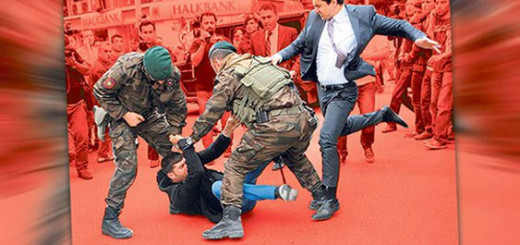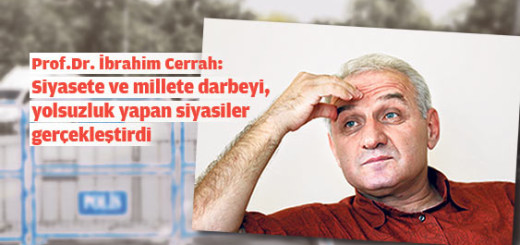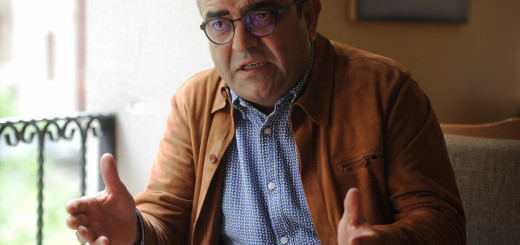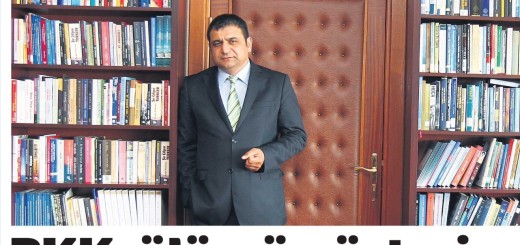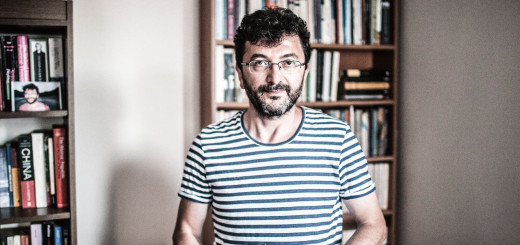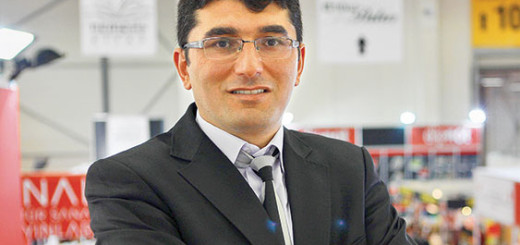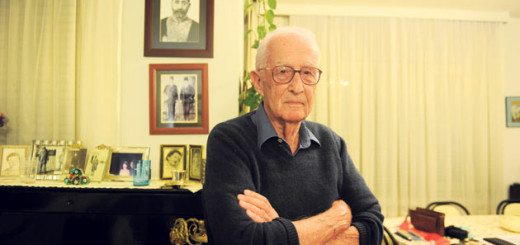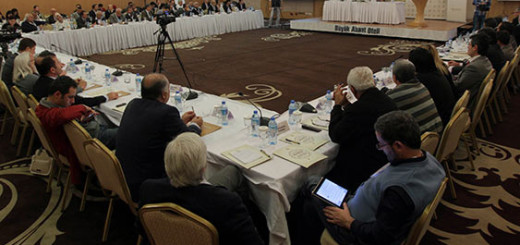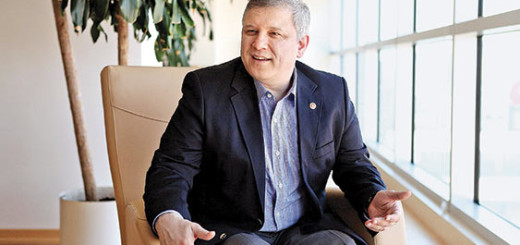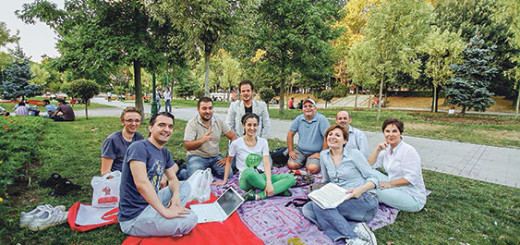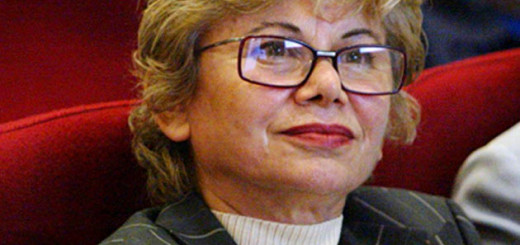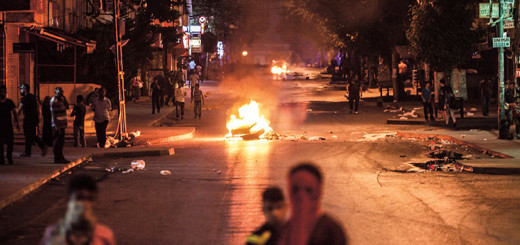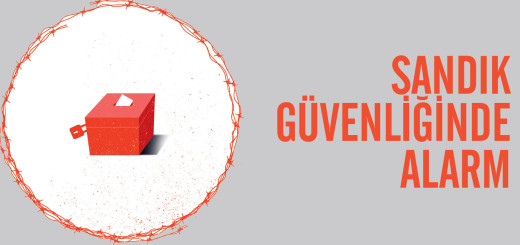
Prime Minister Recep Tayyip Erdoğan is greeted by members of his AK Party upon arrival in Parliament for a weekly meeting on April 29. (Photo: Sunday’s Zaman)
It is clear that Turkey has made progress over the last decade under the Justice and Development Party (AK Party) rule. The country was dubbed a rising star during this period thanks to its polished image in the Middle East, its strong alliance with the US and its EU membership bid. However, it is now possible to argue that there has been a significant decline and deterioration in Turkey’s image over the last few years because of its failure to draft a new constitution, its stalled talks with the EU, the interference in the judiciary, the restrictions on freedoms and rights, the introduction of anti-democratic laws, the Gezi Park protests and the Dec. 17 corruption and bribery operations.
David Gardner from The Financial Times in his column “Authoritarian Erdogan sets an unappealing precedent” refers to similarities between Abdul Fattah al-Sisi of Egypt, Nouri al-Maliki of Iraq and Recep Tayyip Erdoğan, suggesting that Turkey is now being compared to the Russian and Middle Eastern models rather than the democratic regimes of European countries. This raises the issue of how badly Turkey’s image and prestige has been undermined in the eyes of the international community. Pundits, analysts and experts have offered a wide range of comments and observations on how Turkey is viewed around the world and how it is perceived on the international stage.
Journalist İlhan Tanır in the US notes that Americans now associate Turkey with Syria. Turkey is also known by Americans and in the media because of the Gezi Park protests, in which the police allegedly relied on excessive measures. Social media bans, particularly the Twitter ban, as well as the corruption and bribery charges are also affecting the views of Americans vis-à-vis Turkey, which is now widely perceived as an ally that cannot be leaned on rather than as a member of the Western alliance. In addition, strong allegations against the US and its envoy in Ankara in connection with the corruption charges in Turkey and claims that the envoy was involved in a so-called plot against the government were a bad surprise for the US.
In short, the constructive view and image of Turkey in the minds of American policymakers in the last decade have been significantly damaged by the recent accusations and conspiracy theories. It is no longer possible to argue that this is just part of a strategy to appease domestic supporters. For this reason, the strong statements by the government as well as its discourse of polarization and alienation against dissidents have raised the eyebrows of foreign diplomats and decision-makers, giving the impression that there is a chaotic environment in the country. An administration that relies on such harsh language in domestic politics fails to polish its image in international arena.
Politicians now regret supporting AKP government
Brussels, the capital of the EU, has been one of the most ardent supporters of the AKP government over the last decade due to its successes in the fields of economy and democracy. The ruling party’s election victory in 2011 further raised expectations that Turkey would take greater steps and introduce additional reforms towards democratization. However, these expectations were not fulfilled.
Serdar Yeşilyurt, the Turkish Confederation of Businessmen and Industrialists (TUSKON) representative in Brussels, argues that Turkey’s failure to remain a strong and determinative actor in the region in the aftermath of the coup in Egypt created the image in the eyes of Europeans that it is no longer a powerful and stable political player in regional affairs. It is now possible to say that even those in the EU who previously supported Turkey have now withdrawn this support and no longer make constructive calls for reforms. They even say that they regret previously supporting the government, hinting at a long-term problem in Turkey-EU relations. It will take a long time to fix the deteriorated relations because of the criticisms over democracy, human rights, the supremacy of the law and freedom of expression in 2013.
Turkey experiencing a coup staged by the AKP since Dec. 17
Turkey was formerly referred to as a model country for other states in the Middle East. But it is now considered by the EU and the US as a Third World country. Professor Dr. Ali Kazancıgil, a renowned political scientist who lives in France, says most European figures now believe Turkey cannot be European. Turkey went through military coups in the past but analysts are now arguing that Turkey is experiencing a civilian coup plotted by the AKP since Dec. 17. A number of politicians and strategists in Europe now believe Erdoğan is an autocratic leader. The dominant view in EU circles suggests that Turkey cannot be part of Europe at this time.
The EU is particularly worried because of the corruption and bribery allegations in Turkey and the impression that Turkey is supporting radical groups in Syria, as suggested by the trucks belonging to the National Intelligence Organization (MİT) which were searched in Adana. Experts note the world is now watching a leader who claims to be democratic but is meddling with everything, including TV shows, and this indicates that the whole matter is psychological rather than political. Analysts also note that Erdoğan is displaying paranoid tendencies given that he declares everyone, with the exception of his supporters, traitors. But no one overseas takes his allegations over the so-called “parallel state” seriously. Politicians in foreign countries are aware that the Hizmet movement has no political ambitions and that the whole issue is about the weakness of the AKP and the parliamentary system.
As a result of this rapid deterioration, the EU and the US are now disappointed by Turkey’s performance in foreign policy and democratization. According to Dr. Bill Park, a Middle East expert, Washington is not pleased with Turkey because of its policy on Syria, Western countries and alliances and Israel; its radical reaction to US Ambassador to Turkey Francis Ricciardone; its missile contract with China and other similar issues. Strategically, Turkey still matters to the US and the EU but Washington cannot hide its anger while Europe, though still employing a constructive language, does not intend to admit Turkey as a member right now. Europeans believe Turkey is no longer more democratic than it was before the AKP came to power. The party failed to make sufficient progress in crucial fields such as the rule of law, freedom of expression and judicial independence. In addition, Turkey is currently moving towards a single-man rule where the prime minister is seeking to establish full control over institutions.
‘Chaos will not affect Turkish-Russian relations’
Interestingly, the Russian view on Turkey is quite different from those held by Europeans. Political pundits like Alexander Sotnichenko, a Russian expert on Middle Eastern affairs, note that Russia does not perceive any chaos in Turkey and even if there was any, it is generally perceived that this will not affect Turkish-Russian relations as Russia no longer views Turkey as a country that sponsors and supports terrorism in the Caucasus. Even the fact that Turkey is a member of NATO does not affect this perception, analysts say.
‘Rule by majority is weakness of democracy’
Noting that Turkey has been a model country in the field of democratization over the last decade while also displaying visible activism in international crises, analysts such as Dr. Jang-Ji-Hyang, the director at the Research Institute for Middle East and North Africa Policies in Korea, suggest that Erdoğan’s role in this rise should be acknowledged. However, Erdoğan is now viewed as a leader who does not care about the views and priorities of his opponents or even those who did not vote for him.
Despite the fact that he has made bold moves to address the Kurdish issue, Turkey’s EU membership bid and civilian-military relationships during the first two terms, Erdoğan and his party are now wavering in their position. As a result, support for Erdoğan in the international arena is visibly declining. Foreign commentators argue that his eagerness to introduce a presidential system is a sign of his desire to establish an authoritarian regime in the country. They further suggest that Erdoğan should note that the rule of the majority is the weakness of democracy; he thus needs to reconsider his populist policies for this very reason.
Totalitarian practices undermine Turkey’s image in the world
Experts further note that the AKP propaganda relies on messages suggesting that voting for another party would cause instability and chronic problems as well as destructive crises and that should a different party come to power, religious education and practices would also be negatively affected. Analysts like Galal Nassar, the editor-in-chief of the al Ahram weekly in Egypt, notes that Erdoğan blames his political rivals and social network actors instead of investigating the leaked voice recordings on Syria and that he is trying to monopolize power by relying on charismatic leadership. Foreign analysts refer to these totalitarian practices in Turkey but also state that there is something different about the regime in Turkey: The world is aware of this danger and many segments and people in the country acknowledge that Turkey’s democratic experience will be seriously undermined and hurt by this.
